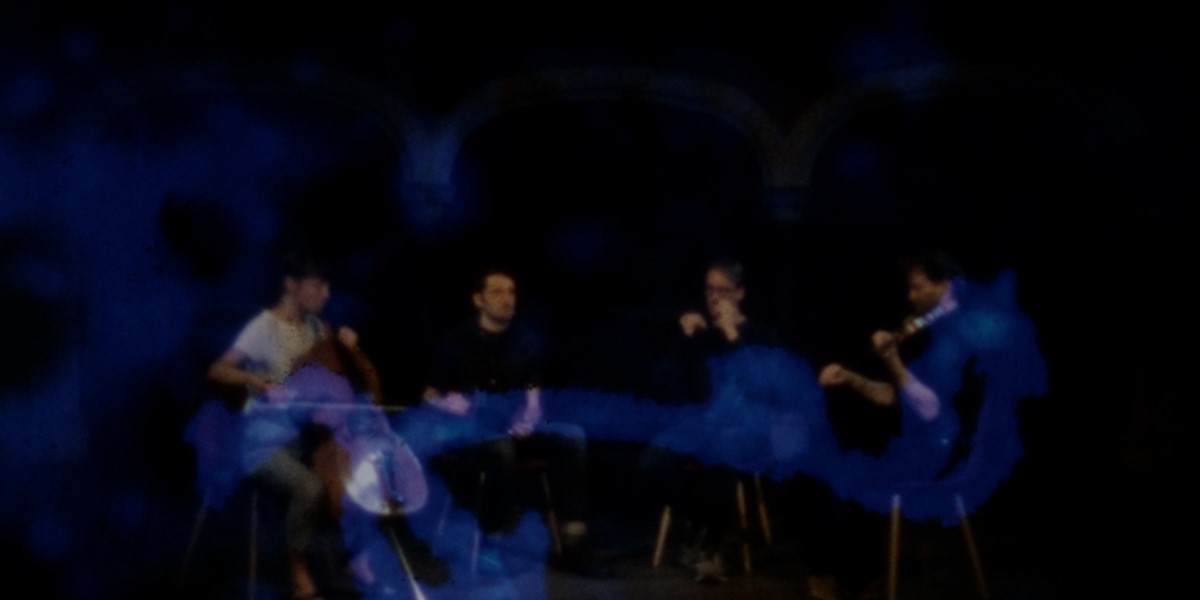Thursday, May 9, 2024
Seabird, Fly Home: Garefowl Take Flight to St Kilda
Russ Slater Johnson hears from Garefowl’s Ewan Macdonald about his connections to the last British seabird made extinct and why he will soon be recording on the Scottish isle where the bird was killed

In 1840, four men in St Kilda caught a great auk and tied it up. When a storm erupted three days later, they killed the bird, believing it to be a witch and the cause of the storm. Fiddle player and multi-instrumentalist Ewan Macdonald heard this story, the tale of the last British great auk, when he was a kid – after all, one of those three men was his relative Lachlan Mackinnon. “It was one of a few family stories that had been passed down from [my dad’s] parents,” he remembers. “My dad is a biologist and did his PhD on fulmars, so seabirds were kind of close at hand growing up.” In 2020, intrigued by an idea proposed by his dad to mark the 180th anniversary of the auk’s killing, Macdonald started Garefowl, using the St Kilda word for a great auk as its name. “I soon got really into everything to do with great auks,” says Macdonald. “They were such an incredible bird and it’s a real tragedy that we drove them to extinction.” Together with five other musicians, Garefowl released Cliffs in 2020, a homage to the last great auk and the history, culture and natural heritage of St Kilda – a Scottish archipelago 40 miles west of the Outer Hebrides. The album used vocals and a litany of stringed instruments (fiddle, viola, cello, bouzouki, banjo and mandolin) to evoke the drama of the bird’s extinction and the island’s desolate, weather-beaten locale.
This May, Garefowl will be visiting St Kilda to write the follow-up in situ. For Macdonald it will fulfil a long-standing goal: “Hearing my dad and my aunt talk about their experiences and the family history on the island was really the thing that built that connection with the island for me. However, this summer will be the first time for me actually getting over there! It makes this trip even more exciting.” Motivated by a 2023 seabird census that showed that there has been a 61% overall decline in birds on the archipelago since 1999, each track on the new album will be named after a seabird. “St Kilda has the biggest seabird colonies in Europe, there’s up to a million birds there,” says Macdonald. “But, they are in real trouble on a number of fronts. Climate change is forcing them to fly further to find fish, so they end up being exhausted by the journey.”
Discussing how making the album will differ from the debut, he says: “We’re exploring a more bare and stripped-back sound this time, and we’re really excited about experimenting with new ways of working… We’re really interested in making sounds in dialogue with nature, and so while we’re out there we’ll be sticking contact mics on various things and seeing what we can hear.” Coming back to his reasons for once more returning to St Kilda as inspiration, Macdonald says, “I guess in a way it’s penance for the way my relation killed that poor great auk.”
This article originally appeared in the June 2024 issue of Songlines as part of an Echoes of Folk special. Never miss an issue – subscribe today
We are also very excited to bring you the video premiere of 'Cas na Caora Hiortaich O', a track from Cliffs, below:

